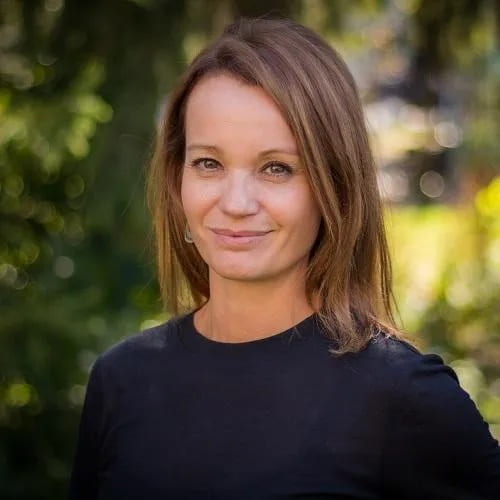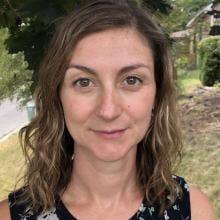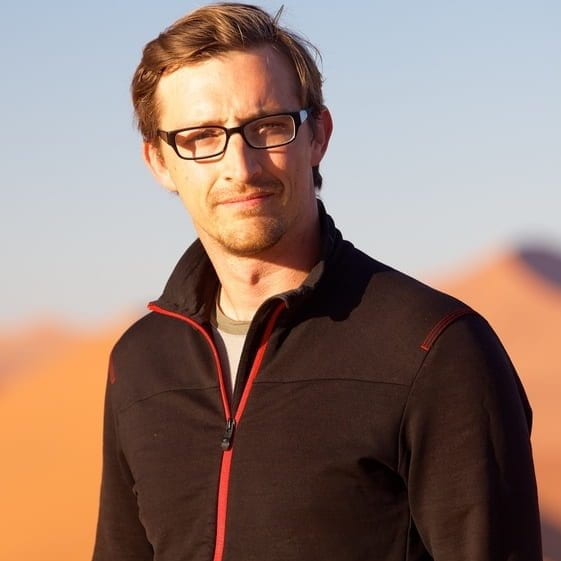2022 Awardees


“Travelling Fido”: Perceptions, motivations, and practices related to international dog rescues
About the Project:
Each year, thousands of dogs are rescued by Canadian owners, with a significant number of these ‘rescue dogs’ being imported from other countries (herein termed canine importation). Many in the veterinary and public health communities have sounded the alarm on the potential infectious pathogen and welfare risks associated with largely unregulated dog movement. Despite these significant concerns, these rescue practices continue to grow, which is driven by diverse moral, ethical and cultural beliefs. For many Canadians, dogs are an integral part of a family and human-animal bonds form because of these adoptions. The focus of this PhD project will be to expand beyond a purely risk-focused narrative on canine importation by: (1) describing rescuers’ (both organizations and adopters) perceptions of and motivations for canine importation, (2) identifying the sociocultural drivers associated with canine importation, and (3) analyzing the human-animal bond formed between rescued dogs and adopters. By including a diversity of perspectives, we increase the likelihood of developing a fulsome understanding of the practice and thus effective, sustainable solutions to make the practice safer for all.
Meet the Team:
Co-Principal Investigator

Katie Clow
Assistant Professor | Department of Population Medicine
Graduate Program Coordinator | Collaborative Specialization in One Health
Ontario Veterinary College | University of Guelph
Dr. Katie Clow is an Assistant Professor in One Health in the Department of Population Medicine at the Ontario Veterinary College, University of Guelph. Her research focuses on the ecology and epidemiology of vector-borne and zoonotic diseases. She also conducts research more broadly on One Health, including pedagogy and community-level applications.
Co-Principal Investigator

Karine Gagne
Assistant Professor | Department of Sociology and Anthropology
College of Social and Applied Human Sciences | University of Guelph
Dr. Karine Gagne’s work builds on various methods from anthropology in order to bring a multidisciplinary perspective to issues related to the convoluted notions of nature and culture, with a focus on examining the political and cultural dimensions of human interactions with the environment.
Mapping the Cryptosporidium transmission landscape among people, cattle, and lemurs in rural Madagascar
About the Project:
In rural Madagascar people face a humanitarian crisis linked to income, food, and health insecurity (World Bank, 2019). There is also a conservation crisis within Madagascar where 44% of forests have been lost or converted to agricultural landscapes between 1953 and 2014 (Vieilledent et al. 2018). These forests support people’s livelihoods and are habitat to many animal and plant species unique to Madagascar (Goodman and Benstead, 2003). This loss of forest has contributed to lemurs (a primate endemic to Madagascar) becoming the most endangered mammal group in the world (Schwitzer et al., 2014). Within Ankarafantsika National Park in NW Madagascar, people and their cattle live in forested landscapes shared with eight species of lemurs (Steffens et al., 2020). People, cattle, and lemurs are all potential carriers and susceptible to infection by Cryptosporidium spp. that can result in the diarrheal disease cryptosporidiosis causing illness and sometimes death (Thomson et al., 2017; Bodager et al., 2015; da Silva et al., 2003). Cryptosporidium is mainly transmitted indirectly via water (e.g., drinking water) and/or directly via a fecal-oral route (CDC, 2022). To protect both animal and human health in this complex system, it is important to understand the potential reservoirs and transmission routes of Cryptosporidium. Identifying and mapping the transmission routes is essential to identify appropriate interventions. This work necessitates a One Health approach and will incorporate tools from multiple disciplines: microbiology, spatial ecology, participatory development, public health, anthropology, and international development.
Meet the Team:
Co-Principal Investigator

Heather Murphy
Associate Professor | Department of Pathobiology
Ontario Veterinary College | University of Guelph
Dr. Murphy’s research interests involve understanding and addressing water and health challenges in both developed and developing countries. Dr. Murphy leads the Water, Health and Applied Microbiology (WHAM) Lab. Her research focuses on four key areas related to microbial quality of water and public health: 1. Surface water quality and recreation, 2. The impact of septic systems and agricultural activity on private wells, 3. Microbial Ecology of drinking water distribution systems and 4. Water and Sanitation challenges in resource limited settings.
Co-Principal Investigator

Travis Steffens
Assistant Professor | Department of Sociology and Anthropology
College of Social and Applied Human Sciences | University of Guelph
As an Assistant Professor in the Department of Sociology and Anthropology at the University of Guelph, Dr. Travis Steffens works to understand the risk factors associated with zoonotic/anthroponotic transmission among humans and their domestic animals, wildlife and their shared environment.
Dr. Steffens leverages conservation biogeography, spatial ecology, and One Health approaches to understand how lemurs interact with and respond to human caused disturbance. He is a member of the International Union for the Conservation of Nature Primate Specialist Group for Madagascar, an international fellow of The Explorers Club, a fellow of the Royal Canadian Geographic Society, and founding director of Planet Madagascar, a charity focused on helping to create sustainable forest communities in Madagascar.



